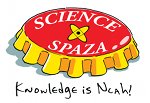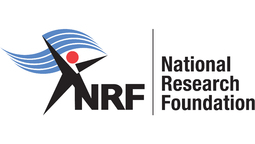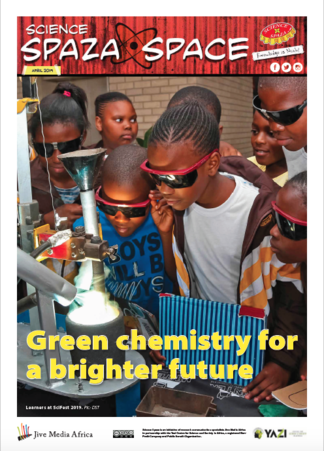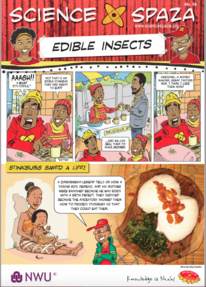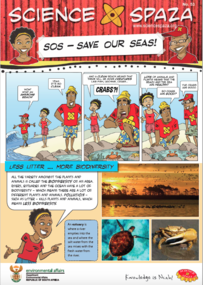We heated up the climate change conversation this year as we took to the streets with our fellow youth to demand climate change action!
Learners from 3 schools in Pietermaritzburg, St. John’s DSG, Maritzburg College and Slangspruit Primary School, put together song and dance performance pieces to express their concerns about our future. They collaborated with researchers, musicians and choreographers to create song and dance performances, and partnered with the PMB Climate Crisis Coalition (PMB CCC) to host a series of events during National Science Week, an initiative of the Department of Science and Technology. The theme this year was “facing the harsh realities of climate change”.
Hip Hop Science Spaza created an opportunity for young people to explore how climate change impacts their daily lives and circumstances. Learners met with researchers from the University of KwaZulu-Natal, Research Chair in Waste and Climate Change and team members from the uMngeni Resilience Project to better understand climate science, and to develop songs through which to share what they had learned. They were also featured on television programme Hectic Nine-9. Be sure to catch their feature above.
The learners wrote their hip and happening songs after interviews with the researchers, and they recorded their HOT tracks! Then, in association with local dancer and choreographer Bonwa Mbontsi, they created a dance routine to perform at our final event!
Check out these cool cats!



Thank you to these organisations for collaborating with us!

Africa has a wealth of edible insects whose nutritional content, life cycles, harvesting, preparation, and socio-economic impacts have been researched and documented. Globally, over 1900 insect species are eaten by humans. 250 of these occur in Africa. For example, stinkbugs are harvested, prepared and eaten by some Venda people in the Vhembe District of the Limpopo Province of South Africa. Stinkbugs are highly nutritious and tasty but need to be captured during the night when the insects are immobilized by the cold.
Insects are a protein-rich mini-livestock and their cost-production ratios are higher than beef, pork or poultry.
Extensive research has been undertaken on edible insects in Africa such as the mopane worm (Imbrasia belina), locusts, termites, the inflated stinkbug (Encosternum delegorguei) and the African metallic wood boring beetle (Sternocera orissa). Entomophagy or eating insects is not restricted to the rural poor but is a highly respected cultural practice which may turn out to be the protein food of the future due to ease and efficiency of production.
Apart from cricket farming in Madagascar and black soldier fly farming in South Africa, there are few insect farms in Africa, even though entomophagy is prevalent on the continent. Rural areas of Limpopo, Mpumalanga and North West Provinces, where insect consumption is well known, have limited income generation opportunities. Insect harvesting provides a wild-sourced resource that is sold informally at pension pay-points, roadsides and taxi ranks particularly by women. In contrast, insect use in Japan has been modernised and numerous products such as tinned, bottled, sweet or savoury insects are available in supermarkets and are found on restaurant menus. There are even annual edible wasp festivals in central Japan that attract international and domestic tourists to see which farmer has nurtured the largest nest!
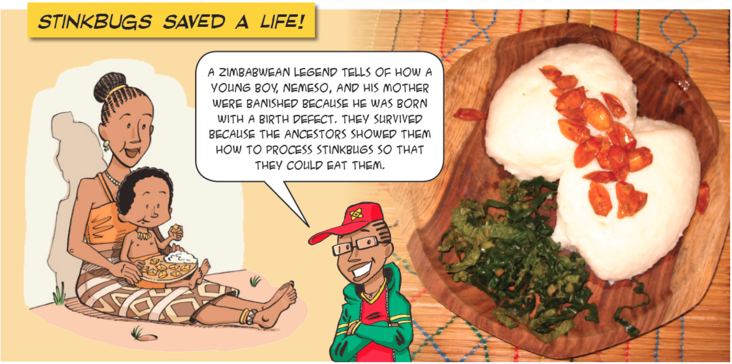
This article was developed in partnership with The North West University and the National Research Foundation
Click on the logos to find out more
This work is based on the research supported by the National Research Foundation. The Grantholder acknowledges that opinions, findings and conclusions or recommendations expressed in any publication generated by the NRF supported research is that of the author(s), and that the NRF accepts no liability whatsoever in this regard.
Would you like to work with insects? Insect farming is a growing industry. Developed nations like Japan, the Netherlands and the United States of America are farming insects as mini-livestock because they are an efficient protein source to produce, have high nutrient value and can be used to improve future food security.
South Africa has a rich history of using lots of different edible insects which are considered by many as a cultural delicacy. Advertising has influenced us to perceive insects as disease-carriers and crop destroyers, however, it is important to learn about the positive impact of insects on people’s health and the economy. Insects play a large role in food security and nutrition, pollination, soil enrichment, and the green economy.
Bianca Mkhize has a Masters degree in Tourism and Hospitality. Through the North-West University Bianca is doing a Ph.D. on insect harvesting and opportunities in tourism. Her aim is to increase tourist experiences of insects in the North West, Limpopo and Mpumalanga provinces of South Africa by showing how these insects are known and used traditionally. She hopes that her research can increase revenue in rural, poverty-stricken areas and motivate communities to conserve nature.

There are various career paths in the insect industry. Check them out below:
Entomologists study insects. This is a fascinating field investigating the diversity, life cycles and behavior of insects. Insects produce unique substances such as chemical defense sprays, attractive pheromones (perfumes), dyes, honey, anti-microbial propolis, paper, and wax.
Ecotourism guides link visitors to the environment and to local communities through real-life experiences like collecting insects for food. This type of tourism ensures that people from different places can interact with each other and local people can benefit from sharing their traditional knowledge.
Environmental educators teach people (both children and adults) about sustainable use to ensure that the resource is not depleted. They would encourage farmers not to use harmful pesticides but rather bait pests from their crops. Homeowners can also make a difference by having the insect’s food plants in their garden.
This article was developed in partnership with The North West University and the National Research Foundation
Click on the logos to find out more
This work is based on the research supported by the National Research Foundation. The Grantholder acknowledges that opinions, findings and conclusions or recommendations expressed in any publication generated by the NRF supported research is that of the author(s), and that the NRF accepts no liability whatsoever in this regard.
Do you love stargazing? Then astronomy might be for you.
Which is the closest planet that can support life?
Or are you “down to earth”? Then you might like to find ways of ensuring food security!
How can we end hunger forever?
Whether your sights are SET on heaven or earth...science, engineering or technology (SET) is a rewarding career choice.
Why science, engineering or technology?
The options are endless. In South Africa, water is scarce and getting scarcer. Everything needs water to survive, and water is a human right. Build your studies and career around making clean water accessible, get your creative juices flowing, and save the country!
Be a computer geek and pursue a career in IT (Information Technology). Your keyboard moves could programme the world of tomorrow!
Distressed about people suffering from diseases? Pursue a career in medicine and help to discover cures no-one has ever thought of!
How about the buzz words - climate change? Are you interested in helping to solve this global problem? Studying what our mothership, Earth, is up to and how she copes with climate change, might make you a famous scientist, and - you could be an earth saver!
If animals and plants are your "thing" – There are millions of species to study, and millions more to discover. Imagine discovering a species that was thought to be extinct. Animal lovers, bird chasers or tree huggers around the world will know your name!
Tired of people complaining about load shedding? Engineers are the ones who will solve our electricity problems in the future!
Gone are the days when scientists were seen as nerds with white coats and thick-rimmed glasses. Engineers are no longer only big men with hard hats, getting their hands dirty! Scientists and engineers are from all walks of life and are not confined by race, gender, wealth, culture or background. Although they work hard, they also play sport, make music, or play computer games to relax. Others write bestselling books that can be understood by anyone. Some start successful businesses or use scientific discovery to change people’s lives.
Did you know that South African scientists and engineers developed a high-tech laser machine, using advanced manufactured material that builds some of the parts that make Airbus fly!
What else?
Pursuing a career in science or engineering will make borders invisible. Because scientists and engineers throughout the world communicate with each other and even work together on projects. Scientists and engineers are in short supply all over the world. If you are a high achiever, you can literally go anywhere.
What next?
There is a tool on the internet that can help you pursue a successful career in science or engineering. It provides information on bursaries for studying the sciences and all branches of engineering. You’ll also find info on places to study, possible careers, and stories of successful young people like yourself.
So what are you waiting for? Visit us here
Your passport to a bright future in science
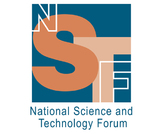


Hi guys! Following on from our IR4 edition, we had seen that advances in science and technology have allowed us to improve the tasks that we do in our everyday lives...BUT at what cost?
The side effects of these advancements in science and technology are now beginning to show, and we have to respond...urgently!
This edition of Spaza Space focuses on chemistry and how we use it in our lives. You will also find out more about GREEN CHEMISTRY and how it is transforming our industries.
Download the worksheet resources by clicking on the cover (each worksheet will open in a new tab)
These resources were done in partnership with:
